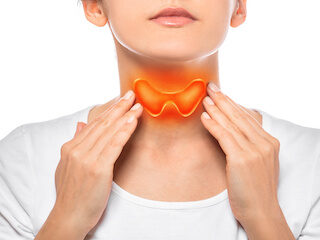by Brenda Hoehn on Aug 23, 2023

Weight Loss Surgery is Not a Miracle Cure for Obesity
Bariatric (or weight loss) surgery (WLS) is not a miracle cure for obesity and is usually considered after several attempts at diet and exercise have failed. Deciding to move forward with weight loss surgery (WLS) can be an exciting time; however, maintaining weight loss and success over time is a team effort. It takes hard work and dedication.
Undergoing bariatric surgery is committing to altering your body’s functioning as well as to a long-term bariatric lifestyle that includes dietary changes and exercise. Be prepared for postoperative challenges such as newfound esteem, old habits that remain, and unexpected feelings.
Rather than thinking about weight loss surgery as a quick-fix cure, think about it as a powerful tool on your journey to a healthier life. The following are some of the most common challenges for maintaining weight and finding success after bariatric surgery.
Dietary Changes
After surgery, your much smaller stomach holds about two tablespoons of food and produces less stomach acid, creating a decreased tolerance for harder-to-digest foods like fried foods and dairy.
After surgery, your doctor will recommend what types of food you can eat and how much. Most diets include lean, protein-rich foods that are low in fats and sugar. As you learn what you can and can’t eat, it’s best to avoid altogether food that causes an upset stomach, diarrhea, and other digestive issues.
Dumping syndrome occurs when foods and liquids enter the small intestine quickly and in larger amounts than usual, causing dizziness, sweating, nausea, vomiting, and diarrhea. Eating and drinking slowly can help avoid this condition. When you drink to quickly, the liquid dilutes the stomach acid and flushes food through your system too fast. That is why you should refrain from drinking 30 minutes before eating, while eating, and 30 minutes after eating.
After your stomach heals and you have progressed to your new healthy diet, it’s essential to get adequate nutrition while keeping your weight loss goals on track. Your doctor may recommend:
- Eating and drinking slowly
- Keeping meals small
- Drinking liquids in between meals
- Chewing food thoroughly
- Eating high-protein foods
- Avoiding foods high in fat and sugar
- Taking vitamin and mineral supplements
Vitamin & Supplement Needs After Bariatric Surgery

Following bariatric surgery, the dramatic decrease in food and the inability to absorb nutrients in malabsorptive procedures can lead to inadequate nutrition that’s required for the body to heal. Proper nutrition is also essential for good sleep, energy, healthy bones and muscle, and much more.
Bariatric-specific vitamins, minerals, and added protein are crucial to getting healthy and staying that way.
A Daily Bariatric Multivitamin: Take a bariatric-specific multivitamin with adequate B vitamins, folate, zinc, and biotin, as well as vitamin D. ProCare Health has several bariatric multivitamin choices. We have easy-to-digest, once-daily capsules or chewables that come with or without varying milligrams of iron for those with iron deficiency or anemia.

Calcium with Vitamin D: Our Calcium Dark Chocolate 500 mg Calcium Plus 500 IU Vitamin D bars are 65% bean-to-bar dark chocolate with less than 2g of sugar, is non-GMO, certified Kosher, gluten-free, soy-free, all-natural, and organic, and is made with Trucal®. Trucal is an all-natural, lactose-free calcium with a higher absorption rate than that of calcium carbonate, and equal to or greater than calcium citrate. Unlike other calcium, Trucal offers a balanced profile of essential minerals and antioxidants, with all the good parts of milk yet very low in lactose.
Protein: Protein is essential to overall health. Most doctors recommend protein supplements that are easily digestible and low in sugar. ProCare Health has a few delicious, easy-to-absorb, convenient protein supplements. Sugar-free, gluten-free LiquiCel has 16 grams of liquid protein in 1 ounce and is packed with flavor (orange, watermelon, peach-mango, lemonade, grape). We also have gluten-free Whey Isolate Protein Powder with 26 grams of protein in chocolate and vanilla, a perfect addition to shakes, smoothies, and even coffee.

Consider additional B-complex. B-vitamin deficiencies are common, and often an additional dose is recommended. The best way to absorb extra B vitamins is by taking a B-complex as a liquid or dissolvable tablet under your tongue. B-complex generally has the essential B vitamins, including biotin, which can help with healthy hair. B vitamins keep your metabolism running smoothly and play a role in every cell in the body, as well as nerve and cognitive function.
Daily Exercise Regime
Besides a healthy diet, following a consistent exercise regime can help with maximizing and maintaining weight loss and help you feel better. When you’re losing weight, it’s essential to burn fat while maintaining your lean muscle and boosting metabolism.
Besides these benefits, regular exercise can strengthen your heart and bones, improve blood sugar, and enhance your immune system. Exercise also produces endorphins that help combat stress, anxiety, and depression, and other negative emotions you may feel after surgery.
Confronting Emotional and Mental Challenges

Dietitian Katie Chapman cautions that “weight loss will not make all your problems go away. The problems you had before the surgery will still be there.” Being aware of this can help you cope if emotional issues arise as you transition to a new way of living.
A common emotional issue that can crop up is body dysmorphia — an unrealistic self-image when people can’t see their weight loss. Other emotional challenges might come in the form of mood swings, breaking your past relationship with food, or feeling vulnerable because of increased attention.
While most patients find a better quality of life after weight loss surgery (WLS), others have experienced depression and other mental health issues.
If you find that you are overwhelmed with emotional challenges, talk to your bariatric care team (your doctor dietitian, and coordinators) as well as support groups. They are there to help you adjust to your new lifestyle.
For more information, read Finding Your Support Systems.
ProCare Health is Your Partner in Your Weight Loss Journey

At ProCare Health, we know what a life-changing decision bariatric surgery is and how complicated it can be. We want to make getting the proper nutrition easy by having the most complete nutrition in as few supplements as possible and removing the unknowns when it comes to knowing what to take. We even offer a free sample to help you get started!
Our caring team considers what we do of vital importance to your health, and only provide the best quality, accuracy, and bio-availability possible so that you get the most from every supplement you take. If you need additional help or have any questions about our bariatric vitamins or supplements, please contact us today with questions or to place an order. 877-822-5808
Please note: the information contained within this article is in no way to be considered medical advice nor is it meant to replace your medical team’s recommendations. This article’s purpose is to educate and allow the reader to make informed decisions with the help of his or her medical team.

Thyroid Health: Obesity & Bariatric Surgery

Why Does Weight Loss Surgery Work?

